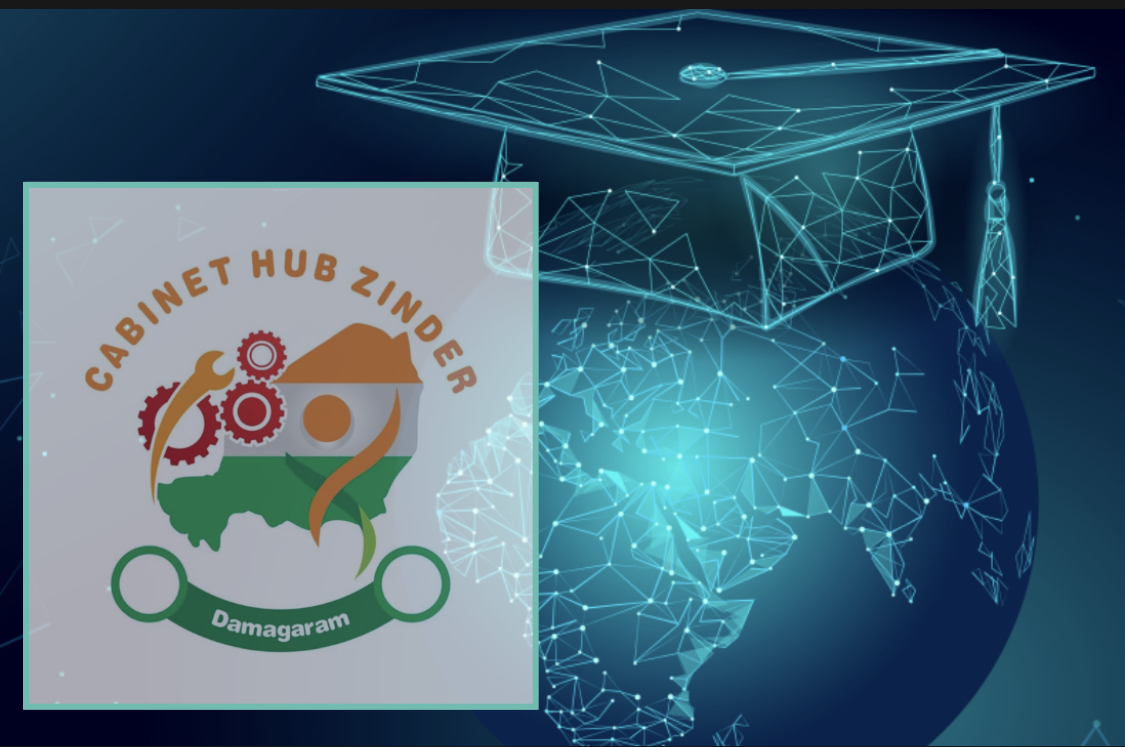By Metohuey Adoglo
Educational technology or edtech, refers to the use of digital platforms and applications to enhance learning experiences. It includes online learning, interactive content, virtual classrooms, and personalized learning for children. These technologies aim to improve efficiency and provide young Nigerians with information, engagement, and employment opportunities.
This edition of “Dreams Talks” will focus on the importance and impact of technology in the education sector.
Our Focus Hub for the edition, “CABINET Hub Zinder” – The Hub seeks to ameliorate Youth Entrepreneurial Skills in Zinder, Niger by providing young Nigeriens aged 18-45 with Education, Empowerment, Engagement and Employment within a conducive co-working environment.
Speaking to us on the subject is the CEO of “CABINET Hub Zinder” Ms Binta Moustapha”
Read More: The Importance of Digital Rights –Safeguarding Our Digital Future in Africa
“CABINET Hub Zinder” & “Ms Binta Moustapha”
Dreams Talks: Can you share what inspired your career?
Ms Binta Moustapha: To be honest, I stumbled into this field. I was an entrepreneur running a social enterprise. I used to volunteer at an American conference where I taught English to students from different backgrounds. They asked me how to apply their English skills in the 21st century. They needed digital skills. That’s how we started providing training on ICT and digital literacy. It eventually led us to become a structured organization, and the rest is history.
Dreams Talks: What are your primary functions and objectives to the hub ?
Ms Binta Moustapha: As the CEO, my primary objective is to drive the goals, objectives, and mission of the Hub. I work with a team, including board members and salespersons, to implement our value propositions and improve our services. It requires strategizing, staying ahead of others, and continuous improvement.
Dreams Talks: What is the significance of educational technology
Ms Binta Moustapha: Educational technology is crucial, especially in a digital age. The International Finance Corporation published research indicating that there are 230 million job opportunities requiring digital skills. To equip young Africans with these skills, edtech is essential. It is relevant not only during and after the COVID-19 pandemic but also for the future of work. Fintech and other sectors require digital education and skills.
Dreams Talks: Can elaborate on the Hub’s strategy towards addressing regional challenges?
Ms Binta Moustapha: Cabinet benefits from my Nigerian background and connections in Silicon Valley. We have friends and partners across Africa, Europe, and the US who support our mission. These connections provide resources, guidance, and networks that open doors for us. We feel blessed to have these opportunities.
Read More: Africa’s Top 5 Countries Driving Technological Advancement
Dreams Talks: What initiatives or programs have promoted digital literacy skills?
Ms Binta Moustapha: We recently had a project sponsored by the Bank of Africa Foundation. It aimed to impact digital skills on 120 young Nigerians in the region, with a deliberate focus on 60% female participation. We faced challenges during recruitment, such as participants lacking email addresses. However, we adapted our methods and successfully provided training on Microsoft Office and other relevant skills.
Dreams Talks: : Cabinet’s goal is to unlock potential. How do you plan to achieve this?
Ms Binta Moustapha: We aim to provide skills and job opportunities, especially for young West Africans who see little hope. In this digital age, digital skills are essential to access opportunities. We are determined to bridge the gap and ensure young people are equipped for the future.
Research and Data Collation in Africa
Dreams Talks: How important is research for African innovation?
Ms Binta Moustapha: Research is the backbone of innovation. It helps identify gaps and provides evidence-based solutions. Without research, we cannot innovate or provide effective solutions. Research is crucial for bridging the gap between the classroom and the job market. It guides policymakers and helps fill those gaps.
Dreams Talks: What challenges does the region face, and how can we address them?
Ms Binta Moustapha: One major challenge is the disconnect between university education and the needs of the job market. Research and collaboration between academia and industry are vital to address this. By understanding market demands, we can equipSpeaker 1: Welcome to Dream Talks. In this edition, we will be discussing the importance and impact of technology in the education sector. Educational technology, or edtech, refers to the use of digital platforms and applications to enhance learning experiences. It includes online learning, interactive content, virtual classrooms, and personalized learning for children. These technologies aim to improve efficiency and provide young Nigerians with information, engagement, and employment opportunities. Cabinet is dedicated to empowering the youth in this regard. Thank you for joining us.
Read More: Shaping Tomorrow, The Vital Role of Futurism in Education
Dreams Talks Conclusion
Edtech is of utmost importance in Africa. It holds the potential to transform education, making quality learning accessible to all. By bridging the digital divide, offering personalized learning, and nurturing a skilled workforce, Edtech can empower the continent’s youth and drive economic growth. Embracing this transformative technology is essential to create a brighter and more equitable future for Africa’s education sector and its people.
Our Story So Far. Your Dreams Matter, Your Stories Matter #DreamsTalks #AfricantechSpace pic.twitter.com/seZElwurGq
— Africanian News (@africaniannews) July 3, 2023









